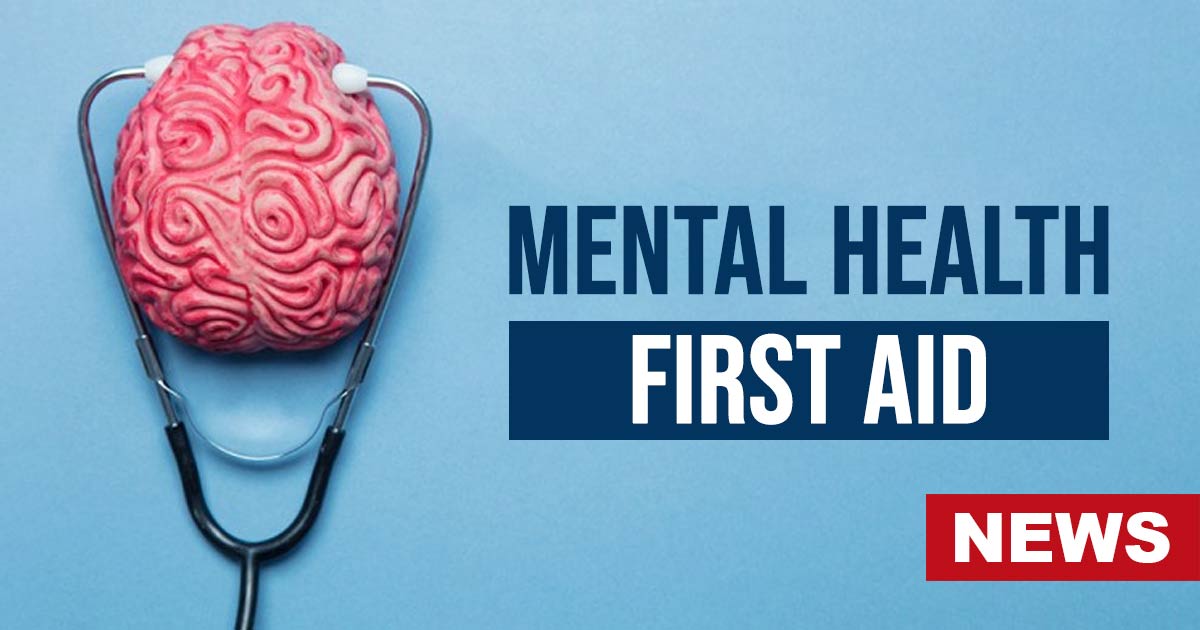- Mental health first aid training and kits are practical tools that help to provide essential information, crisis management tools, and self-care resources.
- These serve as portable support systems, enabling trained individuals to respond effectively to mental health emergencies.
What Is Mental Health First Aid?
Mental Health First Aid (MHFA) is a training program designed to equip individuals with the skills and knowledge to provide initial help and support to someone experiencing a mental health crisis or struggling with mental health issues.
Just as physical first aid is administered to address immediate physical injuries, mental health first aid aims to provide immediate support and assistance to individuals facing mental health challenges.
The MHFA program was initially developed in Australia in 2001 and has since been adopted and adapted in various countries worldwide. It is typically delivered through certified training courses that teach participants how to recognize signs of mental health problems, offer non-judgmental support, and guide individuals toward appropriate professional help.
What Are The Benefits Of Mental Health First Aid?
Mental Health First Aid (MHFA) training enhances mental health literacy by providing participants with a deeper understanding of mental health conditions, symptoms, and risk factors. It helps combat stigma and misconceptions surrounding mental health, enabling individuals to recognize and respond to mental health issues more effectively.
Additionally, MHFA emphasizes early intervention, equipping individuals with the skills to identify signs of distress or crisis and intervene promptly to provide initial support. This early intervention can help prevent the escalation of mental health problems and facilitate timely access to professional assistance.
Mental health first aid training also promotes a non-judgmental and compassionate approach, reducing the stigma associated with mental illness and fostering a supportive environment. By strengthening support networks within communities, trained individuals become valuable resources, providing support and guidance during times of mental health crisis or distress.
Efficiency of mental health first aid kits
In addition to training programs, mental health first aid kits have gained popularity as practical tools to support mental health first aid providers. These kits typically contain resources and materials that aid in the initial response to a mental health crisis. While the specific contents may vary, common components of mental health first aid kits include:
- Informational Materials:
These can include brochures, pamphlets, or booklets that provide essential information about mental health conditions, self-help strategies, and available support services. They serve as quick references for mental health first aid providers and those seeking assistance.
- Crisis Management Tools:
Mental health first aid kits often include crisis management tools such as hotline numbers, contact details of local mental health services, and emergency response protocols. These resources assist in accessing immediate professional help and guide individuals on how to respond in crisis situations.
- Self-Care Resources:
Self-care is a crucial aspect of mental health first aid. Kits may include items such as stress balls, relaxation techniques, mindfulness exercises, or self-help books to support individuals in managing their own mental well-being while providing assistance to others.
The efficiency of mental health first aid kits lies in their ability to provide accessible and practical resources for immediate use. They act as portable support systems, allowing trained individuals to respond effectively to mental health emergencies, provide accurate information, and direct individuals toward appropriate professional help.
It is important to note that mental health first aid kits do not replace formal training but rather complement the skills acquired through mental health first aid training programs. They serve as aids to reinforce knowledge and assist in the application of learned techniques during real-life situations.





















